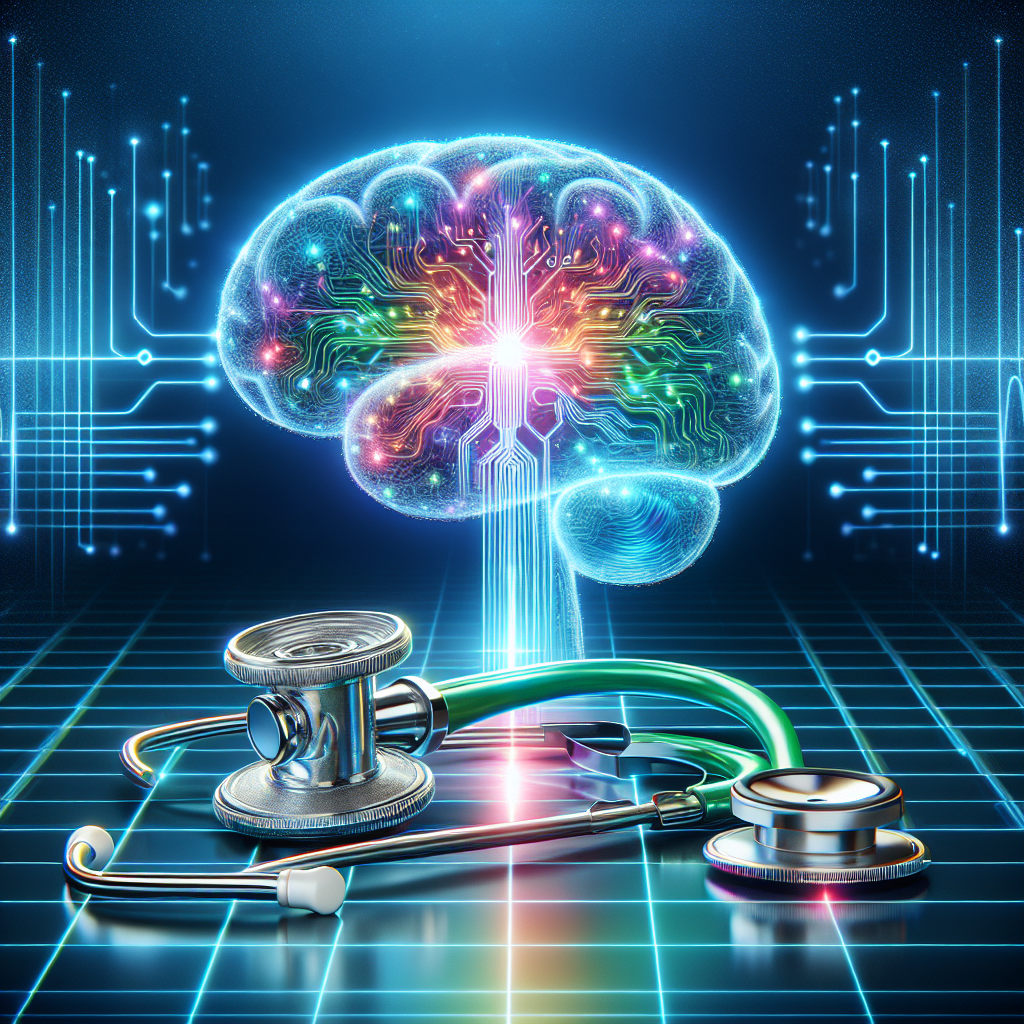Artificial General Intelligence (AGI) is a rapidly advancing field that is revolutionizing the way healthcare is delivered. AGI refers to machines that possess the ability to think, learn, and adapt in ways that mimic human intelligence. In healthcare, AGI is being used to improve patient outcomes, streamline processes, and enhance the overall quality of care. This article will explore how AGI is transforming the medical field and discuss some of the key benefits and challenges associated with its implementation.
AGI in Healthcare: A Brief Overview
The use of artificial intelligence (AI) in healthcare is not a new phenomenon. For years, AI has been used to assist with tasks such as diagnostics, treatment planning, and patient monitoring. However, traditional AI systems are limited in their capabilities, as they are designed to perform specific tasks within a narrow domain.
AGI, on the other hand, has the potential to revolutionize healthcare by providing machines with the ability to reason, learn, and adapt in a way that is similar to human intelligence. This means that AGI systems can analyze complex data sets, identify patterns, and make predictions that can help healthcare providers deliver more personalized and effective care to patients.
One of the key advantages of AGI in healthcare is its ability to process and analyze vast amounts of data at a speed and scale that is beyond human capability. This allows AGI systems to identify trends and correlations that may not be immediately apparent to human clinicians, leading to more accurate diagnoses and treatment plans.
AGI is also being used to improve patient outcomes by enabling more proactive and personalized approaches to care. For example, AGI systems can analyze a patient’s medical history, genetic information, and lifestyle factors to identify potential risk factors and recommend interventions that can help prevent the onset of diseases or complications.
In addition to improving patient care, AGI is also helping healthcare organizations streamline processes and reduce costs. By automating routine tasks such as scheduling appointments, processing insurance claims, and managing medical records, AGI systems can free up healthcare providers to focus on more complex and high-value activities.
Challenges and Considerations
While the potential benefits of AGI in healthcare are significant, there are also challenges and considerations that need to be addressed in order to ensure its successful implementation. One of the key challenges is the ethical and regulatory implications of using AGI in healthcare.
For example, there are concerns about the privacy and security of patient data, as well as the potential for bias and discrimination in AI algorithms. Healthcare organizations must ensure that AGI systems are designed and implemented in a way that protects patient confidentiality and upholds ethical standards.
Another challenge is the need for healthcare providers to develop the necessary skills and expertise to work effectively with AGI systems. As AGI becomes more integrated into clinical practice, healthcare professionals will need to undergo training and education to understand how to use these technologies effectively and ethically.
Finally, there are concerns about the potential impact of AGI on the job market, as automation and AI technologies continue to replace traditional roles within healthcare organizations. While AGI has the potential to improve efficiency and productivity, it is important for healthcare providers to consider the implications of these changes on their workforce and develop strategies to mitigate any negative impacts.
FAQs
Q: How is AGI different from traditional AI in healthcare?
A: Traditional AI systems are designed to perform specific tasks within a narrow domain, while AGI systems have the ability to reason, learn, and adapt in a way that is similar to human intelligence.
Q: What are some examples of how AGI is being used in healthcare?
A: AGI is being used to improve diagnostics, treatment planning, patient monitoring, and administrative tasks such as scheduling appointments and processing insurance claims.
Q: What are some of the benefits of using AGI in healthcare?
A: Some of the key benefits of AGI in healthcare include improved patient outcomes, more personalized and proactive care, streamlined processes, and reduced costs.
Q: What are some of the challenges associated with implementing AGI in healthcare?
A: Some of the key challenges include ethical and regulatory implications, the need for healthcare providers to develop the necessary skills and expertise, and concerns about the impact on the job market.
In conclusion, AGI has the potential to revolutionize the way healthcare is delivered by providing machines with the ability to reason, learn, and adapt in a way that is similar to human intelligence. While there are challenges and considerations that need to be addressed, the benefits of using AGI in healthcare are significant and have the potential to improve patient outcomes, streamline processes, and enhance the overall quality of care. Healthcare organizations that embrace AGI technology and develop strategies to address its challenges will be well-positioned to lead the way in the future of healthcare delivery.

